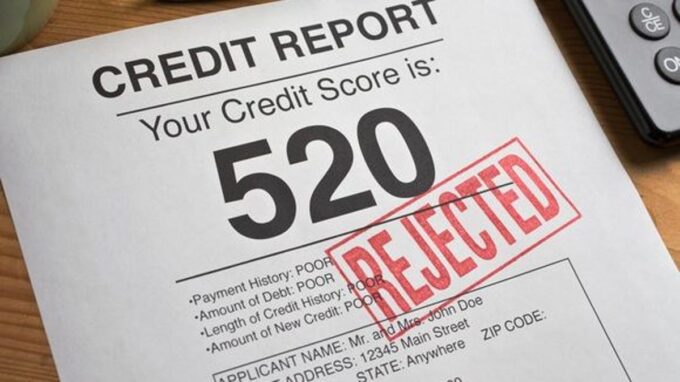If you are deciding to start a new business, or you already have one that is in dire need for some changes, upgrades or even just a money flow for current expenditures, a loan is a good idea if you don’t have the cash to make that happen. Now, like everything else in business, your loan approval or decline depends on certain factors.
Lenders run a business and that business has to be responsible. They can not give you a loan if they are not sure that you can pay it back. So, when applying for a loan they take a look at a lot of stuff that will show them your current state, and depending on the state their indicators return they will decide if you are legible for a loan.
You probably used a loan already in business or otherwise and you probably are familiar with the steps you have to take to make one happen, but here you will find out all about the things that make your application rejected. We will list 7 of the most common reasons that put creditors of and make them decline your loan application.
Just a little side note, there are places online that actually can give you a quick check for loan eligibility. You enter a few basic information and they give you an eligibility estimate which can be a cool starting point when thinking about getting one of those. For more information check out one of those at little-loans.com
Now, let’s start with the 7 reasons you have to look for if you don’t want your application declined!
1. Bad credit history

Now, this is a problem for most of us, but there is one thing that most of us don’t know regarding the bad credit fact. There are different levels of bad credit. As an example, you maybe never defaulted on a credit or a credit card before but you might have applied for several loans in a very short period and that might get you bad credit history. It is always a good thing to check your credit score before applying for a new loan.
2. Insufficient income
This is probably the basic factor you have to take into consideration is your income. If you don’t have enough cash that flows in the lender can’t give you a loan if your income can’t cover your repayment. There is a bottom line income you have to have for your loan to be approved. The best thing to do is check if there is a said minimum set by your loan officer and if not try and work out what repayments you will need to make and if they can be manageable by your income.
3. Loan purpose

Some loans must have a purpose to obtain them. You have to check if your loan has a purpose clause attached to it and if you can finance what you need to from it. This means that loans also come with restrictions on how the loan can be used, and a good example of this are secured loans that are given for car loans that have restrictions on car age of the vehicle you are purchasing. If your loan purpose isn’t credible, your loan approval chances are going to bottom out.
4. It’s all in the details
Since the lenders will rummage through your information thoroughly it is of the utmost importance to make sure every detail is correct and honest. If there are any inconsistencies in your loan application than a sure thing to expect in return is that your loan request will certainly be rejected. As it’s said – the devil lies in the details.
5. Employment and employment history

To repay what you get from lenders you have to have a stable job and this is one of the things that lenders are most concerned. What is important is to have a stable job with a secure and stable income, as well as to be out of your probation period to maximize your chances of getting a loan approved. Of course, you have to know that probation dimes differ and thanks to that lenders will usually require three months of payslips six moths on casual employees.
6. Too many loans
This is probably the most self-explanatory factor of all. It is normal for a creditor to refuse you if you apply for a new loan whilst having 3 or 4 already. They don’t factor in the success of your repayment and the punctuality of it they simply vary of the amount of debt you have and the possibility of suddenly not being able to repay one of them, which will cause a whole avalanche of problems for all of the creditors.
7. Value of secured assets

Lenders usually have restrictions on assets or their types that can be used as collateral for securing a loan. This means that there are assets that don’t have high enough value to secure the amount of money you are trying to loan. Several factors influence the appraisal of the asset value and depending on some complicated calculations and predictions of certain movements in time, you might get a rejection thanks to this reason. The best thing is to do the calculation for yourself and see what asset you own can make it into consideration by your lender.
So, we hope that this article will help you figure out what exactly you have to look out for when applying for a loan, or it will most likely give you an answer on why did your last loan gets rejected. All these factors have to be considered carefully, mostly because few of them are tightly tied together and one depends on others. The constant changes in the market and this whole new COVID-19 problem will surely make getting a loan more difficult now, but if you have all your facts in line you should not experiences significant problems. Also, try and not stick to only one creditor, walk around and gather info from others because if one creditor has certain restrictions another one might not. Plus, there is always that possibility that you will find a more favourable interest rate somewhere else.
Just one last tip for you – when loans are in question persistence is not the key. Don’t keep continuously applying for a loan if you keep getting rejected. Think very carefully about the reasons for rejection because all your loan or credit applications, successful or not, will end up in your credit file.









